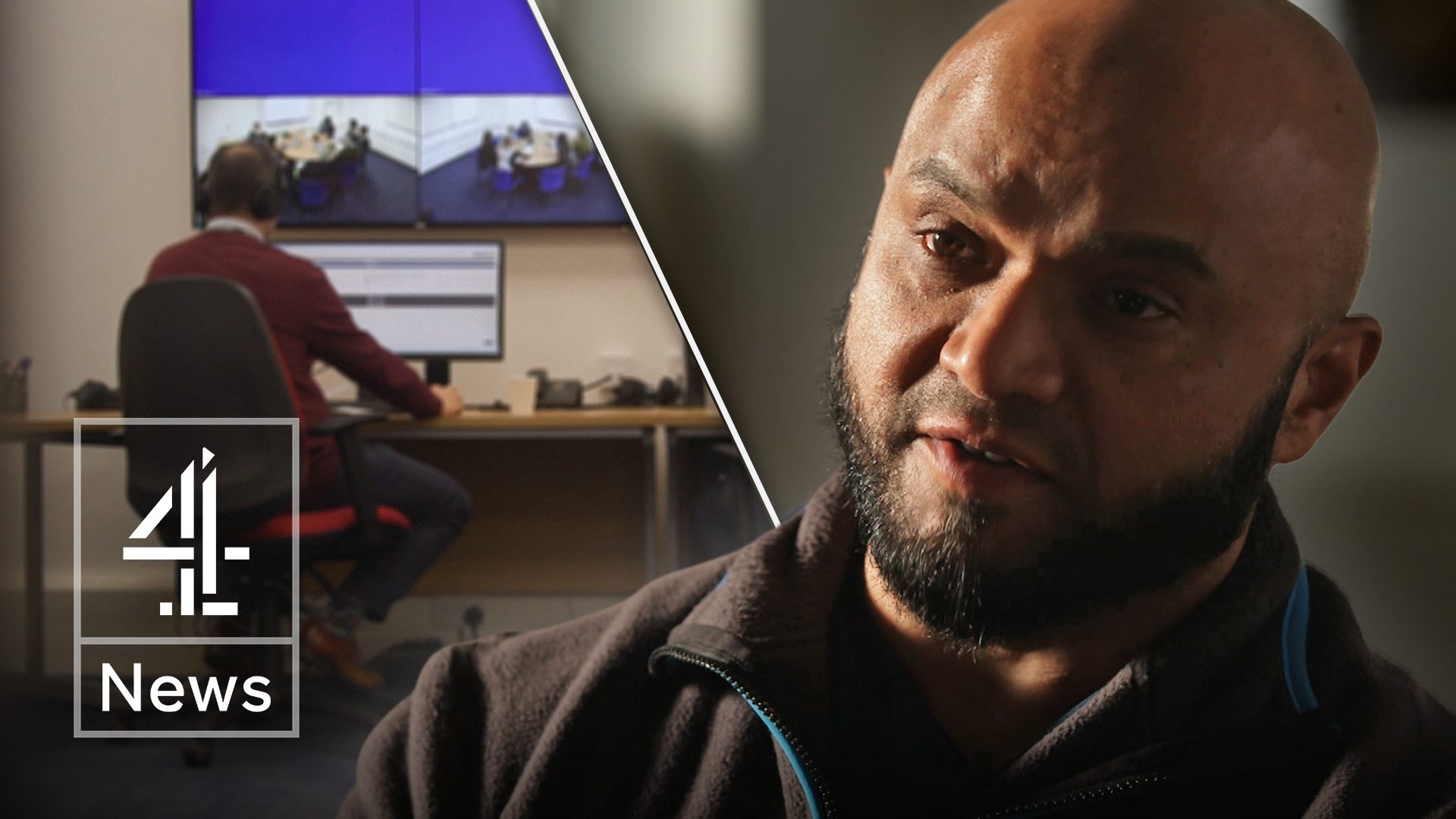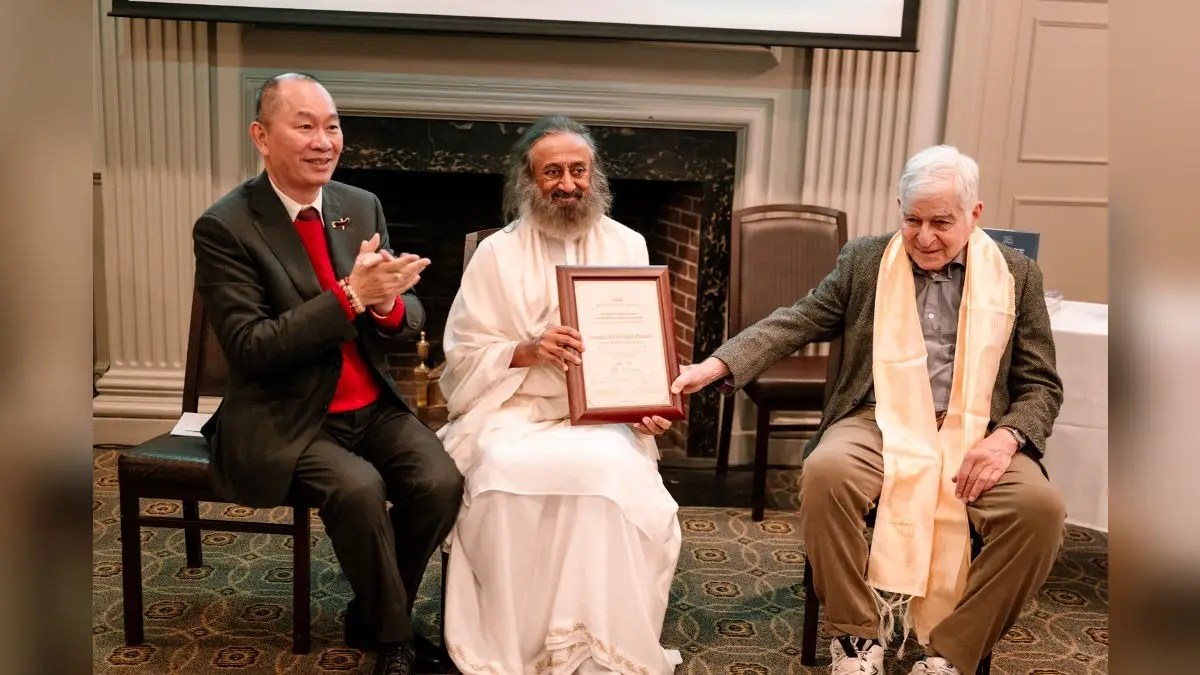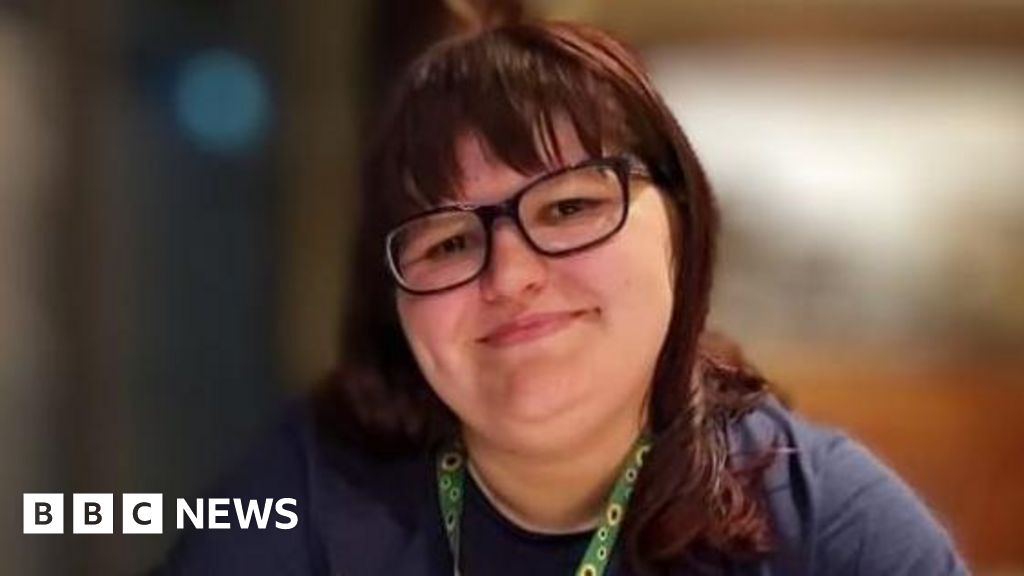Copyright channel4

No-one other than directly-relevant agencies has ever gained access to a Prevent ‘Channel Panel’ – the multi-agency group that assesses whether an individual is susceptible to extremism and requires early intervention. The panels are comprised of professionals from various backgrounds. During the morning introduction, I list 12 different agencies in my notebook – ranging from fire and rescue services and local councils to police officers and NHS trusts. Every person in the room has experience of assessing real-life cases. Many lead their local authority’s Prevent strategy, some spent decades in counter terrorism policing, others are mental health and child safeguarding specialists. Crucially, the panel members are crystal clear on their task: how will they protect the individuals who’ve come to their attention? ‘Amanda’ and ‘Stephen’ In a small room with corporate blue carpets and swaying white polyester blinds, there are five men and two women. They listen intently to a Counter Terrorism case officer who has called to tell them about Amanda, a 17-year-old girl of Indonesian and white European heritage. She’s been provocative in class, according to her school. Amanda is upset about the treatment of refugees from Muslim countries. She’s been telling friends that she wants to leave Britain, though these claims are uncorroborated. Amanda recently converted to Islam. The officer reels off this information matter-of-factly before abruptly logging off. “Do we adopt or not?” asks one of the five suited men. This is the fictional town of Westshire. Amanda doesn’t exist, but the man in the suit does. He has asked the fundamental question of this enterprise – should Amanda be adopted into the Channel programme or not? The second case involves Stephen, another fictional character who has been referred by a mental health professional. He’s been looking up mass shooting content online. He’s active on Telegram – a messaging platform often used by extremists. Stephen is autistic and has missed two mental health sessions. It’s a training session, of course. Inside College of Policing HQ We are at the College of Policing headquarters in Coventry. A sprawling, utilitarian site. The Channel professionals are here to put their decision-making skills to the test. They have half an hour to assess two different cases then make their decisions. In real life, the timings can vary dramatically. In his summer review of Prevent, the interim Independent Prevent Commissioner Lord Anderson KC noted that in some circumstances decisions are made in 10 minutes due to the volume of cases. Later, one of the attendees bemoans the pressure on panel members, a sense of “you’d better make sure the decision is right,” he says. I side-eye the air, quickly assessing whether he has articulated my own expectations. The trainers utilise an uncomplicated digital interface that simulates the challenges of dealing with live incidents and investigations. I’m given an iPad with the same software so I too can scroll through a document that has ‘Highly Sensitive’ branded in red at the top of every page. As the exercise unfolds, reams of information are added to the interface. There are phone calls and pieces of audio that interrupt this flow. It’s all fed in from a central control room that has eyes on every Channel Panel training room. The discussions are being monitored by the trainers who are former counter-terror officers. “They can hear us,” laughs one participant nervously, while they wait for more information to arrive. We are given documents from different organisations: an email from Amanda’s school, for example, and another from a charity that has been working with the teenager. There is a substantial amount of detail to absorb before deciding whether the individual in question requires intervention or might be a risk to the public in the future. Much time is spent reading – realistically, some may be scanning – the sparse details offered about Amanda’s life. She’s a good student. Smart. But her demeanor is changing. The conversation between the panel members is collegial, mostly, sometimes veering into impassioned disagreement. Someone is frustrated – why has this case been referred to them? Another chimes in, “there are a lot of young people who are facing challenges but Prevent isn’t here for this. I can’t see a clear and present ideology.” The latter is a phrase that comes up repeatedly over the course of the day. The idea of a ‘clear ideology’ has become Prevent’s existential crisis, and it is an urgent question. Record referrals to Prevent Data released this week shows that a record number of referrals were made to Prevent in the year to March 2025. The majority of referrals were made for individuals who had “no identified ideology.” Axel Rudakubana murdered three young girls at a dance class in Southport last year. During the sentencing, the judge described Rudakubana’s actions as “equivalent to terrorist murders.” He was not motivated by any clear ideology, and despite being referred to Prevent three times was not referred onto Channel for early intervention support. While Lord Anderson recommended that Prevent remain open to individuals who do not appear to have a clear ideology but may be interested in committing extreme or mass violence, I wonder, as the day passes, how easy it would be for long-time Prevent practitioners to shift away from this apparent default to ‘no clear ideology.’ Might it complicate decision making? Overload an already overburdened system? Towards the end of the day, one of the former counter-terror officers confirms that the “big challenge for Prevent is the individual who wants to harm others but doesn’t have a clear ideology.” The decision making feels holistic. The panel members discuss adverse childhood experiences, complex needs, family history as well as online activity, evidence of extreme views and any fascination with violence. “What I would say is Channel is perceived as quite a good way of getting things done for troubled people.” – Lord Anderson We’re told that sometimes referrals are made to Prevent because it’s seen as a shortcut to accessing mental health services and wider support. I asked Lord Anderson whether this is an example of professionals ‘playing the system.’ “I think what you are saying has a point,” he said. “What I would say is Channel is perceived as quite a good way of getting things done for troubled people. “If that means sticking a counter-terrorism label on it or a prevent label on it, then that is what is sometimes done. To my mind, it’s not ideal.” ‘It’s not an exact science’ In the main training room, fur-lined winter coats are heaped on the backs of brand-new chairs that will be bobbly and coffee-stained in a few years. Dotted across the tables are different types of water bottle, some flamboyantly patterned, others just plain old plastic filled with orange squash. There are rucksacks and hand-bags; trainers and shiny brogues. The only item the panel members all share is a visitor lanyard. “It’s not an exact science” – Panel member I am struck by the confluence of professional knowledge and subjective opinion. “It’s not an exact science,” says one of the panel members. Yet, the stakes are so high. It’s crunch time. The two panel groups have come to different decisions: one adopts Amanda, the other does not. The ensuing discussion is rigorous. Some are frustrated that Amanda was referred in the first place, and one man says the overreliance on linking religious conversion and Islamism is completely wrong. Differing views Others say she’s just a teenager exploring her identity. Those who adopt are concerned about her behaviour change. Those who don’t adopt ensure that Amanda is referred on to child-safeguarding services. All the while, the two former counter-terror officers leading the training ask probing questions and encourage dissenting views. They are keen to reassure both panels that neither made the wrong decision. “You sought your assurance in a different way,” they repeat throughout the day. Much of the language used is geared towards the safety of the individual in question. The chatter is light-hearted when the trainees troop back to the main training space. They seem to quickly leave the weight of their decisions behind. For sensitivity reasons, we weren’t given permission to interview any of the panel members, but I want to know how it feels to make these grave choices on behalf of the nation. Fundamental fallibilities? There is a sense of both relief and achievement. The team has worked through the material and reached a decision, though sometimes those decisions were on the fence. I’m left questioning whether the fundamental fallibility of these panels is the people themselves? The panel’s decision making felt holistic; guided by a desire to protect the person and the public. But many felt a pressure to make the right decision. And that task will only get harder as the frontiers of terrorism continue to shift. Correspondent: Ria Chatterjee Senior Producer: Jamie Roberton Camera operators: Martin McQuade and Devron Callender Graphics: Fabrizio Viani Video editors: Helen Williams, Lorenzo Dodi and Saif Aledros



